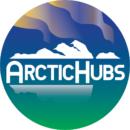As the world contends with the reverberations of climate change and the evolving landscape of industries, the Arctic stands at the forefront of transformation. The imperative to comprehend the trajectory of the distinctive Arctic ecosystem has drawn a diverse assembly of youth to Inari, Lapland, Finland.
From the 16th to the 18th of August, young individuals hailing from Finland, Sweden, Norway, Iceland, and Greenland gathered beside the tranquil expanse of Lake Inari.
Their purpose?
To forge a collective understanding, to unravel challenges, and the possibilities on the horizon of the Arctic.
The event, a joint initiative by ArcticHubs and the ACAF project supported by the Ministry of Foreign Affairs of Finland, was organised by the Sámi Education Institute, a partner of the ArcticHubs project. With a shared goal of addressing the complex issues facing the Arctic region, the workshop facilitated dialogue between indigenous youth and those from the majority population, fostering a holistic understanding of the challenges that need to be tackled.
The workshop was packed with activities designed to spark discussions, encourage networking, and facilitate innovative thinking. Participants began by introducing themselves and sharing insights from their respective home villages, showcasing the rich diversity and unique perspectives that collectively form the tapestry of the Arctic. The event featured a keynote speech by local Northern Sámi rapper Áilu Valle, who likely brought a fresh and resonant voice to the discussions.
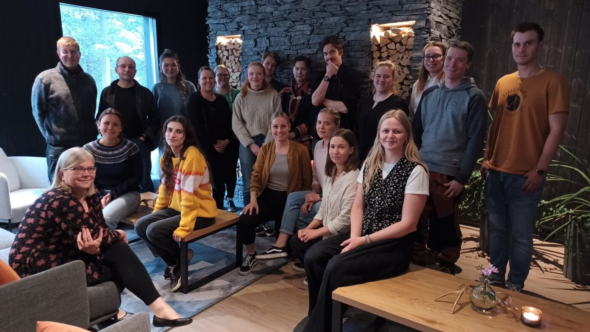
Arctic’s future.
The participants delved into the opportunities and threats that the region might face by 2035. This exercise involved considering multiple factors, including the changing operational landscape, climate impacts, and the roles different industries play in shaping the region. The youth exhibited a profound concern for critical issues, such as the mounting tourism in small villages, the potential conflicts arising from land use, and the overarching challenges posed by climate change.
Interestingly, the workshop identified several areas of potential growth and positive change. Participants highlighted the importance of education in preparing communities to meet the evolving demands of the future. Additionally, the conversation touched upon themes like achieving self-sufficiency in terms of food and energy, as well as the empowerment of indigenous peoples and the need for their voices to be heard more effectively in decision-making processes.
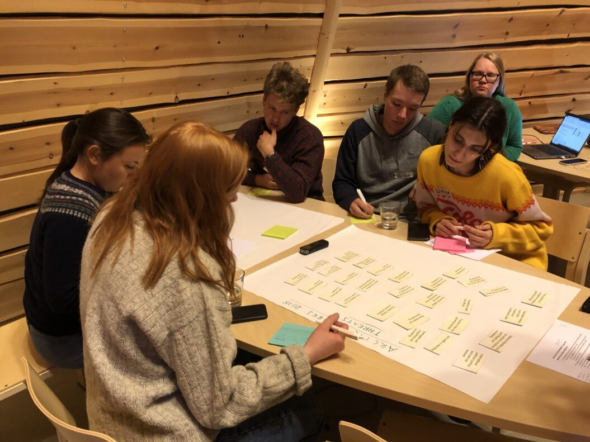
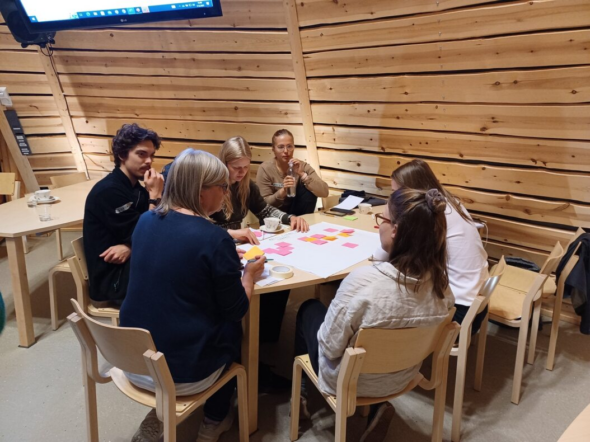
The prospect of individuals moving back to northern Arctic villages also emerged as a potential trend, signifying a desire to preserve and revitalise these communities.
Key insights emerging from the workshop:
- Migration from Northern regions: many are drawn by opportunities such as education and work that may not be readily available in Arctic Northern remote areas. This exodus presents both challenges and potential opportunities for local communities.
- Climate-induced migration: the workshop also shed light on the rising concern of climate refugees. As environmental changes escalate, communities could be displaced due to deteriorating living conditions
- Diverse Arctic realities: it was evident that diverse areas of the Arctic presents distinct characteristics and challenges. For example people from Greenland often access higher education from outside the island, like from Denmark.
- Vast distances: a common thread woven through the conversations was the geographical vastness of the Arctic, and the need for innovative solutions to bridge these considerable distances.
The workshop also featured practical experiences that brought participants closer to the reality of the Arctic. A visit to the Sámi Education Center and a trip to the Juutua river highlighted the cultural and environmental aspects of the region, providing a deeper context for the conversations.
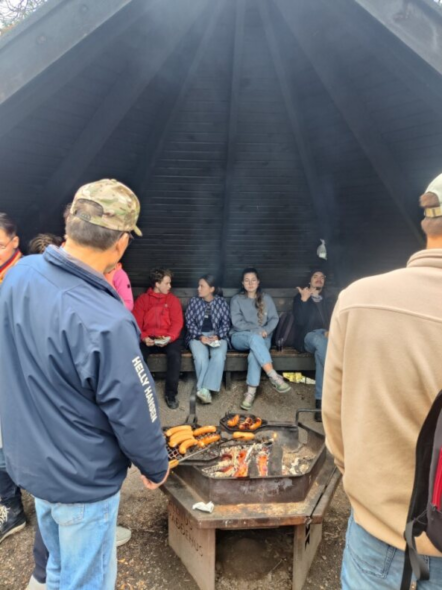
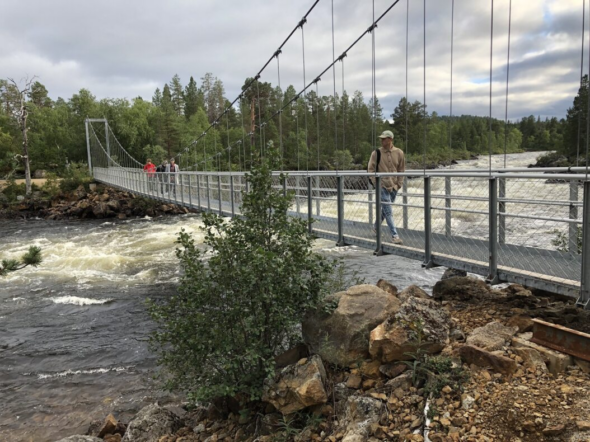
The workshop’s impact extended beyond its participants, fostering collaborations between various projects and organizations.
The ArcticHubs and ACAF projects, both led by the Natural Resources Institute Finland (LUKE), exemplify the power of collaboration in tackling complex challenges.
By uniting academic research, government support, and local expertise, these projects form a comprehensive framework for understanding and addressing the intricacies of the Arctic’s future, as underlined by Taru Rikkonen, researcher at LUKE
The Arctic stands as a microcosm of the global challenges we face. And the Arctic youth workshop in Inari showcased the importance of engaging young minds in envisioning and shaping the trajectory of this vital region.
By bringing together diverse perspectives, fostering discussions, and building connections, this event demonstrated that collaborative efforts are essential for ensuring a sustainable future for the Arctic and, by extension, for the entire planet.
